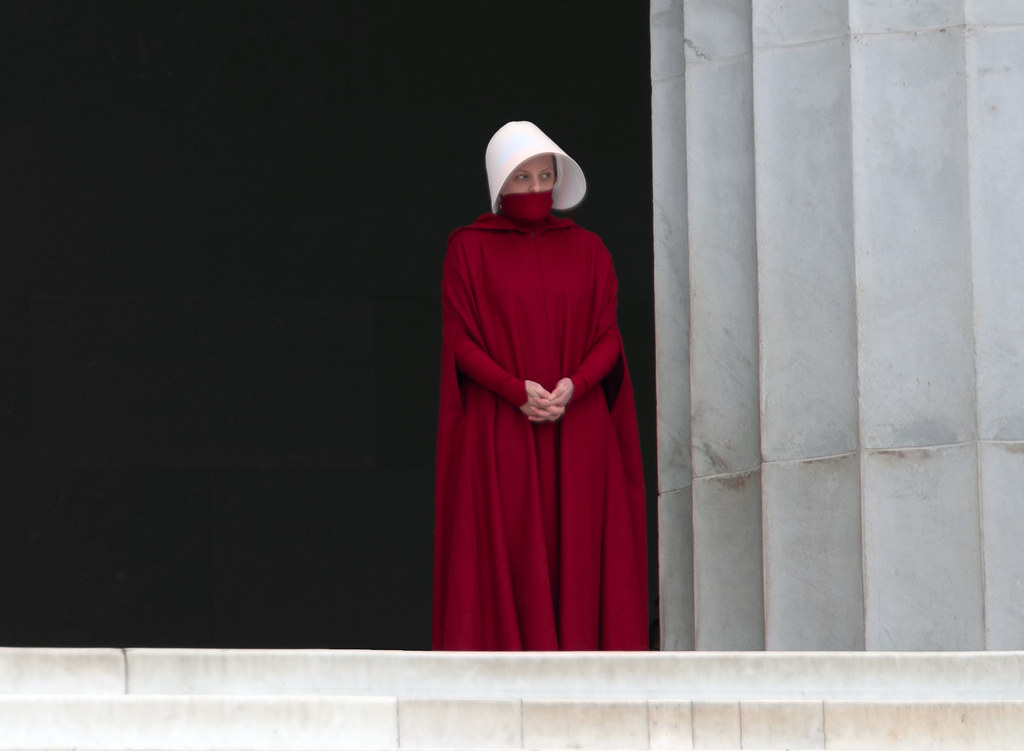When Hulu’s television adaptation of The Handmaid’s Tale premiered in 2017, it seemed like the right piece of pop-feminism for the moment. Gritty prestige drama with a dystopian twist? Check. Emmy-nominated lead actress in her next big role? Check. Source material from a beloved piece of 20th-century literature? Check! Now, we are three seasons in — two seasons beyond Margaret Atwood’s novel — and here I am, trying to understand just when the show began to eat itself alive, and why I’m still watching it.
Season one had its woes. The decision to treat Gilead as a post-racial society was ridiculed, as was the ironic choice to hire a male showrunner. The criticism reached an apex mid-second season, crucifying the show for its constant, almost unbearable concession to torture porn. There was a lot of gratuitous rape, unimaginable violence, and at least one extended sex scene that was “consensual” but still an arduous watch.
By a certain point, the show seemed less concerned with condemning the violence of its world than with depicting it, pushing boundaries that nobody asked it to cross. It hammered home its message (look how awful things are in Gilead!) so often and so unforgivingly that each episode felt like a new punishment-of-the-week. But there I was, every Sunday night, wringing my hands with my eyes glued to the TV.
By a certain point, the show seemed less concerned with condemning the violence of its world than with depicting it, pushing boundaries that nobody asked it to cross.
With the third season now over, the show has rightly taken the torture porn criticism to heart. There was less sensory overload this season, but removing it has revealed other egregious shortcomings in everything from soundtrack choices to character building. As such, The Handmaid’s Tale has wedged itself into a conundrum. The showrunners have established a rigid tone that is ingrained in the storytelling but far too contrived to be anything but laughable.
It can be easy to mishandle narrative devices, and unfortunately, The Handmaid’s Tale has not done itself any favours in this arena. June’s voice-overs once tried to emulate the book’s conversational narration style, but now they’ve regressed to an exhausting formula. Each episode begins with her waxing philosophical about her predicament, and then undercutting the monologue with something horribly cringey, like, “nolite te bastardes carborundorum, bitches.” Screen goes black. Cut to title card. I roll my eyes… but make sure they’re back in place by the time the scene starts.
The show has fallen into a trap that plagues a part of today’s pop culture — specifically, the part trying to align itself with hashtag-happy, cookie-cutter liberalism. We need look no further than the pointed writing and acting to know that this is the vision that the showrunners have had all along. June says something snarky to a Commander and she becomes a #queen or a #bossassbitch. June walks down a hallway in slow motion with a smirk on her face and she becomes the poster girl for a brand of female power that looks like it could be something but isn’t anything; not really.
The showrunners have established a rigid tone that is ingrained in the storytelling but far too contrived to be anything but laughable.
June is a messianic-like figure among Handmaids and a favoured servant given special treatment from Commanders despite her constant transgressions; I think this is the root of the show’s weaknesses. The Handmaid’s Tale feels less effective when it tries to portray its protagonist as a great resistance leader — a chosen one, adored and reviled by all the right people — rather than a regular woman documenting her dire circumstances. The latter story would feel more compelling, more urgent, more truthful. They’re trying so hard to make June deserving of the lead role, but shouldn’t the whole point be that she could be any of us?
The Handmaid’s Tale wants to convince us that in Gilead, you could get a limb amputated or an eye gouged out for stepping even slightly out of line. So why does June emerge physically unscathed so often? It may sound like an odd complaint to those who don’t watch, but it feels entirely out of sync with the show’s world-building to have a character cross lines as frequently as June does — illegal reading, attempted escape, assault of a higher-up, conspiracy against the state — and not have so much as a finger cut off. Does that fit in with the ruthless picture of Gilead that the show is so intent on selling us? Depicting June as an indestructible figure merely makes the setting less believable.
This show has become so self-satisfied with its lead character and its glossy faux-feminism that it is dangerously close to parody. Pop songs punctuating disturbing violence? Not exactly groundbreaking, and even less so now that the show seems to do it every episode with songs that are too on the nose (this season, June lost her mind and attacked another Handmaid while Fiona Apple’s “Every Single Night” played in the background. Come on!). Elisabeth Moss can only do so much with the material she’s given, but she elects to give the camera the same Kubrick stare every episode. She’s playing the Heath-Ledger’s-Joker version of June Osborne, with her unhinged whispers and mouth twitches.
The Handmaid’s Tale has become so self-satisfied with its lead character and its glossy faux-feminism that it is dangerously close to parody.
It would be wrong to say that The Handmaid’s Tale has jumped the shark. More accurately, it has shit the bed. So why, why, why do I still watch? Is it because I’m in too deep to stop? Is it because I love when Ann Dowd plays mean, sadistic supporting characters? I know I’m not the only one who is both frustrated by and addicted to this show. I have an inkling that we collectively can’t stop watching it because we’re dystopia junkies, compelled by anything that might tell us what the world will look like at its end.
I know that I lean forward in fascination during flashbacks to Gilead’s beginning; the changing laws, the stripping of rights, the eventual coup-d’état. I know that part of me wants to see how bad things can get before they’re at their worst. And I think that this show, frustrating and unwatchable as it can be, pulls at all of these strings in my brain, and probably yours too, especially as we navigate a reality that has echoes of Gilead in it. I let out a small scream when I read that the series would be renewed for a fourth season because, regrettably, I know I’ll be watching it. The Handmaid’s Tale isn’t timely because of politics or presidents; it’s timely because we’re more vulnerable and attracted to dystopia than ever.








